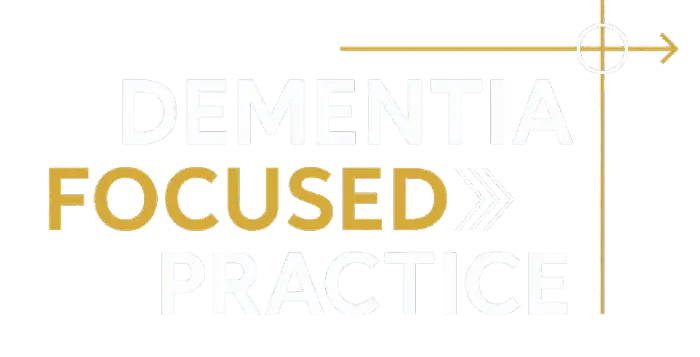Bridgewater Dementia Advance Care Planning

Following a dementia diagnosis, you or a loved one will likely wonder what the future holds. How can you plan for the care you will need? What if you can’t afford it? Who will make decisions when you can’t?
These questions can be difficult to answer by yourself, but an experienced elder law attorney in Bridgewater can assist you with advance care planning (ACP). This ongoing process allows you to make future care decisions and express your wishes.
At Van Dyck Law Group, we know how confusing and stressful a dementia diagnosis can be. We are here to help and support you and your family in this difficult time. Our dedicated legal team will answer your questions about ACP, lay out the options, and help you proceed with the planning process.
Please contact us for a consultation to learn more.
Why Hire a Bridgewater Dementia Advance Care Planning Lawyer?
There are several decisions you should make as soon as possible after a dementia diagnosis. Although this disease usually progresses slowly, it’s still hard to predict how long it will take before symptoms worsen.
Additionally, some patients experience a more rapid decline than others.
One of the first decisions you will need to make is choosing someone to manage your affairs when you can’t. Your lawyer can create a power of attorney (POA) document giving this person, also called an “agent”, the ability to make decisions on your behalf.
There are several different types of POA to consider. The two most common types of POA for advance care planning or estate planning are:
- Financial POA. The person you choose as an agent will be able to handle financial matters, such as paying your bills and managing assets.
- Medical POA or “proxy directive.” This allows the agent to make medical decisions when you are unable to communicate your wishes. You can combine it with a living will or “instruction directive,” to let the agent know about certain types of care you do or don’t want.
Usually, these POAs are durable, which means they take effect immediately and remain in effect after the grantor becomes incapacitated. There are other options, such as the “springing” POA that only becomes effective when the grantor is unable to make decisions.
However, these POAs can be cumbersome, so many people choose a durable POA. Your lawyer can discuss the differences and answer any questions you have.
Even with a durable POA, you or your family member can continue to make decisions as long as you are mentally competent.
How to Plan for Long-Term Care
Many people with dementia will eventually need some type of assistance. Oftentimes, in the moderate stages of the disease, this may take the form of assisted living or an in-home health aide.
As the illness advances, long-term care, like a nursing home, often becomes necessary.
Cost is one of the biggest concerns that people have when discussing their future care. Often, clients tell us they’re unsure if they can afford a nursing home.
Alternatively, they worry about quickly burning through their retirement savings. Additionally, they may want to leave enough resources to provide for a spouse, children, or other heirs.
We recommend considering your options and learning the future costs as soon as possible. You may want to visit some assisted living facilities in your area or contact in-home care agencies for a quote.
What Happens If You Can’t Afford Care?
Your lawyer will review your financial situation and discuss the options for covering the cost of care. Here are some solutions you may consider:
- Private health insurance. If you’re still on a private health insurance plan, your policy may not cover long-term care, such as a nursing home, but might cover some costs, like prescriptions or a certain amount of in-home care.
- Medicare. If you’re over 65 or have certain disabilities, you may already be using Medicare. This program covers short-term hospitalization and certain services provided by nursing homes, but does not cover room and board in a long-term care facility.
- Medicaid. Unlike Medicare, you don’t have to be 65 or meet specific disability criteria to apply for Medicaid, which covers nursing home care. However, there are strict income and asset requirements based on the federal poverty level.
Applying for Medicaid
Frequently, clients ask us about Medicaid and their assets. Many people do not qualify for Medicaid if they have significant assets, but could qualify if these assets are spent down.
The good news is that some assets are considered “exempt,” at least in specific circumstances. For example, many people are concerned about their home, as it may be their most significant asset.
Generally, a person’s primary residence is treated as an exempt asset, meaning it doesn’t count toward Medicaid eligibility. However, this changes if the person enters a nursing facility.
After six months of the owner living in a care home, the property may no longer qualify as a primary residence, at which point it could be treated as a countable asset. There is one exception—if your spouse still lives in the residence, it can be treated as exempt.
Similarly, a vehicle that the owner no longer drives can still be excluded from consideration if a family member actively uses it. However, additional vehicles, property, or valuables are typically non-exempt.
Barriers to Advance Care Planning for Dementia
The most significant barrier to advance care planning for dementia is knowledge. Medicaid and other assistance programs have complex rules and difficult application processes.
Setting up a power of attorney or advance directive requires legal knowledge and skill. Research can be complicated, especially when you aren’t sure what you need to know.
The best solution for this barrier is to speak with a knowledgeable estate planning attorney. We will answer your questions so you can make an informed decision, and then assist you with whatever you would like to do next.
Another potential barrier is cost. We understand that rising healthcare costs affect everyone, and legal planning can also seem expensive, especially if you’re already worried about future expenditures.
However, avoiding legal advice is not the way to save money in this situation. In the long run, taking the appropriate legal steps to secure your future care will help you reduce expenses and conserve your assets.
Another barrier is competency. In some situations, a client may contact us because their loved one has advanced dementia and is no longer able to make decisions.
If a person is incapacitated and has not already completed estate planning steps like assigning a POA or advance healthcare directive, there are other options. A family member can submit a petition to the court for a conservator or guardian position, allowing them to make decisions as needed for the person with dementia.
This process can take time, so we always recommend early estate planning. However, if it’s too late for that, please contact an attorney immediately to learn about the next steps.
Dementia Advance Care Planning FAQ
How Long Does a POA Remain Valid?
Most POAs are considered valid until the grantor is deceased. However, you can set specific conditions about when the POA should end.
Here are some other reasons a POA may cease to be valid:
- You may cancel it or “revoke” it. As long as you have the mental capacity, you retain the right to terminate your power of attorney at any time. For instance, if you believe the agent is not handling matters appropriately, you could revoke the POA and select someone else.
- It’s not durable, and you become incapacitated. In New Jersey, a power of attorney must explicitly state that it is durable to remain effective after incapacity. Without this language, it will automatically end once you’re deemed mentally incompetent, just as it would upon death.
- Your chosen agent is unavailable. If no appointed agent can act on your behalf, the POA becomes void. To bypass this issue, it’s wise to name a backup or alternate agent in the document.
- It reaches its expiration date. If the power of attorney includes a specific end date, it will no longer be valid once that date has passed.
- The goal is completed. When a POA is created for a particular task, such as, but not limited to, closing a real estate deal, it terminates once that task is finished.
- The court ruled it invalid. Although this rarely happens, a judge may revoke your POA if there is evidence that you lacked mental competence at the time of signing, or if the document was executed under duress, fraud, or undue influence. To avoid some of these situations, your attorney may advise you to have a medical exam, so a doctor can confirm you are currently competent.
When Should You Contact an Advance Care Planning Attorney?
We recommend seeking legal advice right away after you or a loved one is diagnosed with dementia. The earlier you begin planning, the more options you will have.
Is There Any Way to Preserve Your Assets and Remain Eligible for Medicaid?
This is an important question to ask your lawyer. In some cases, we can transfer assets into a specific kind of trust that will protect them while you receive Medicaid.
A note of caution: Never attempt to transfer assets without seeking legal advice. Some methods of asset disposal can render you ineligible for Medicaid.
Work With Van Dyck Law Group Today
If you or a loved one is facing the challenges of legal planning after a dementia diagnosis, Van Dyck Law Group is ready to assist you. Our knowledgeable elder law attorneys are committed to helping you understand your options, answer your questions, and prepare documents that reflect your personal goals.
We understand the emotional and logistical difficulties that accompany a dementia diagnosis, and we are here to provide compassionate, reliable support every step of the way. Contact us today at (908) 201-0629.


